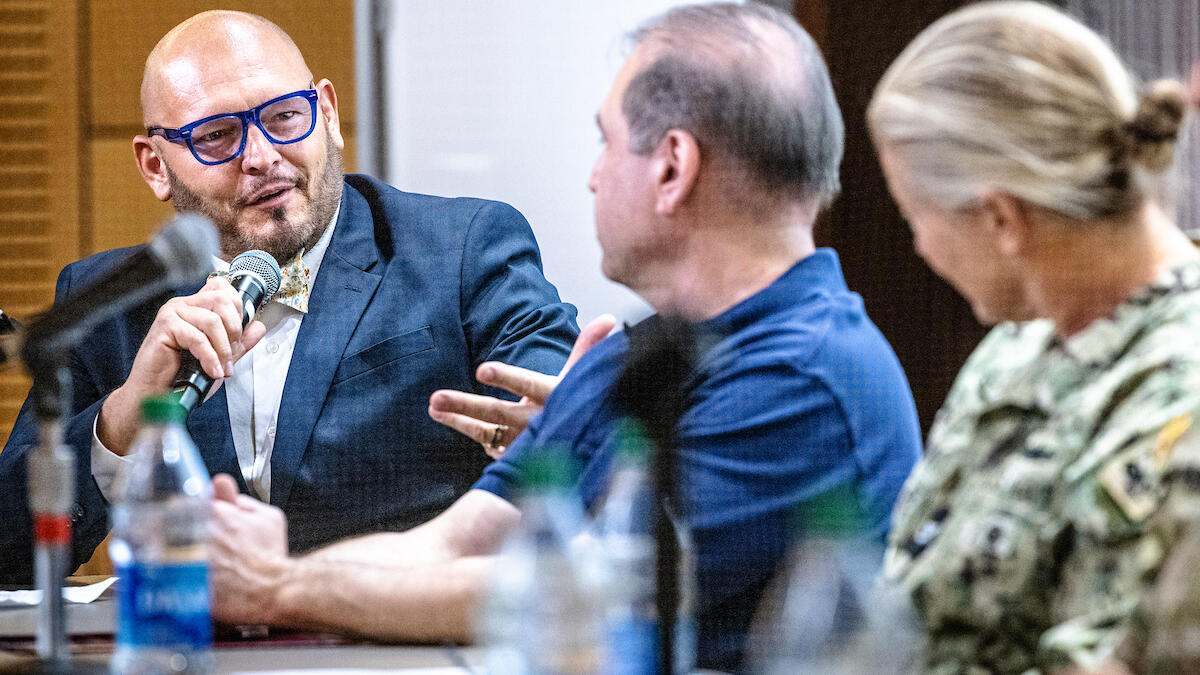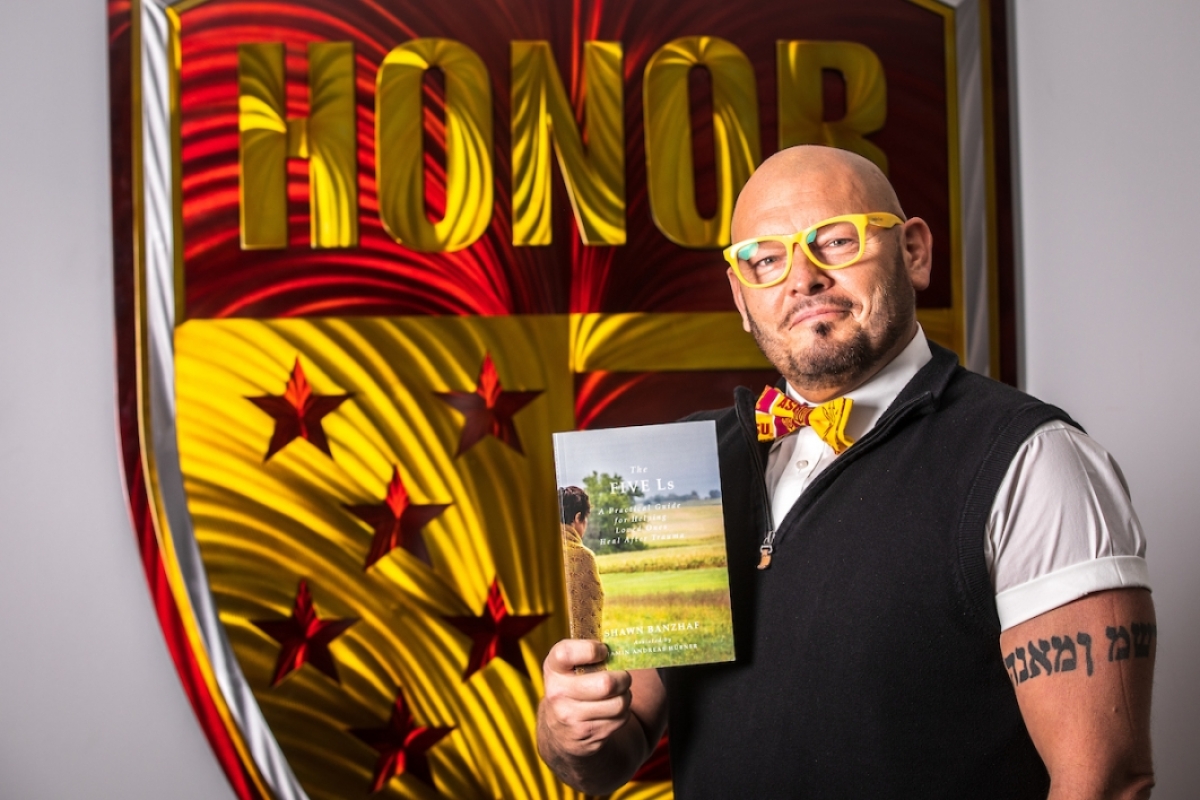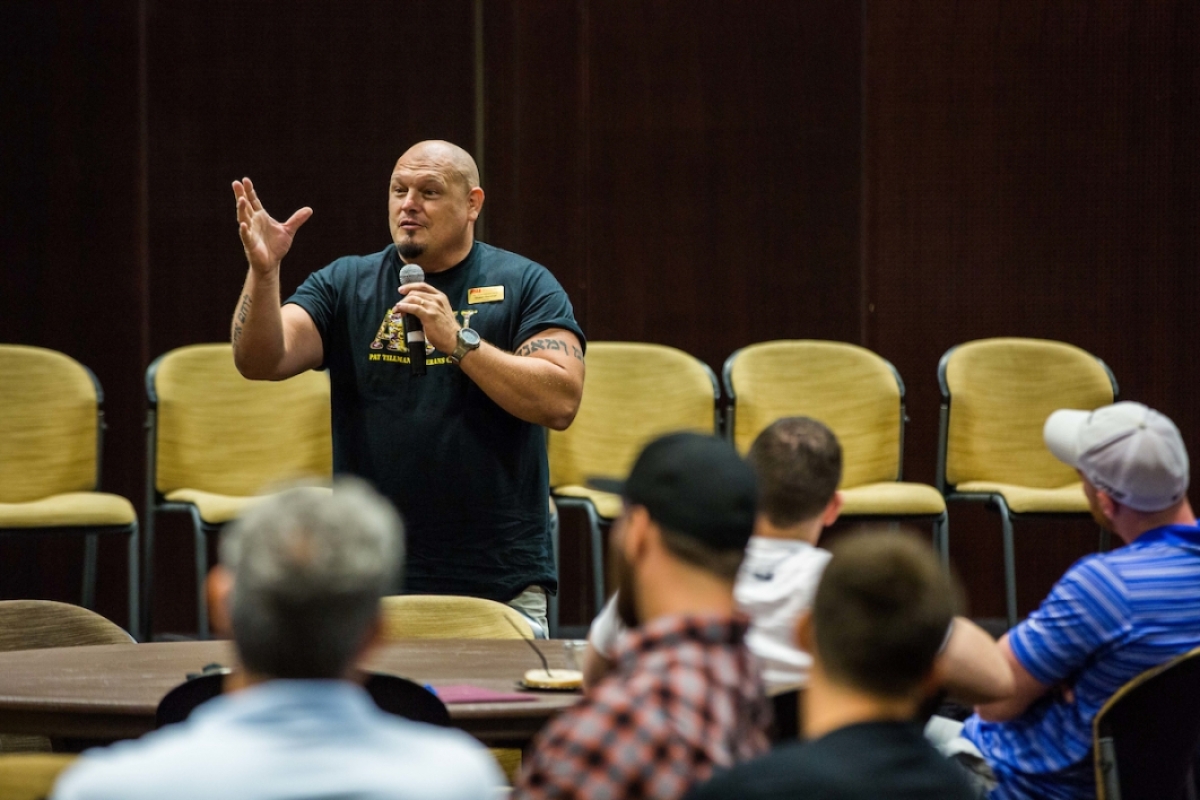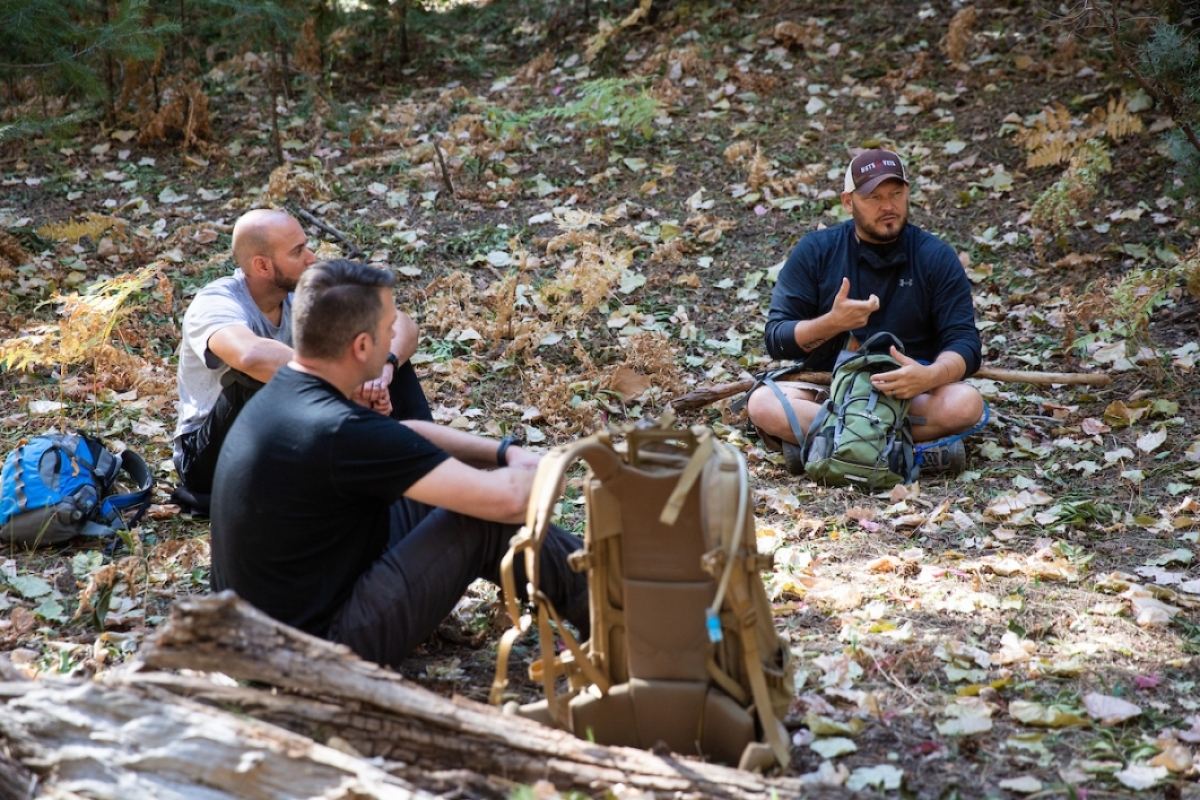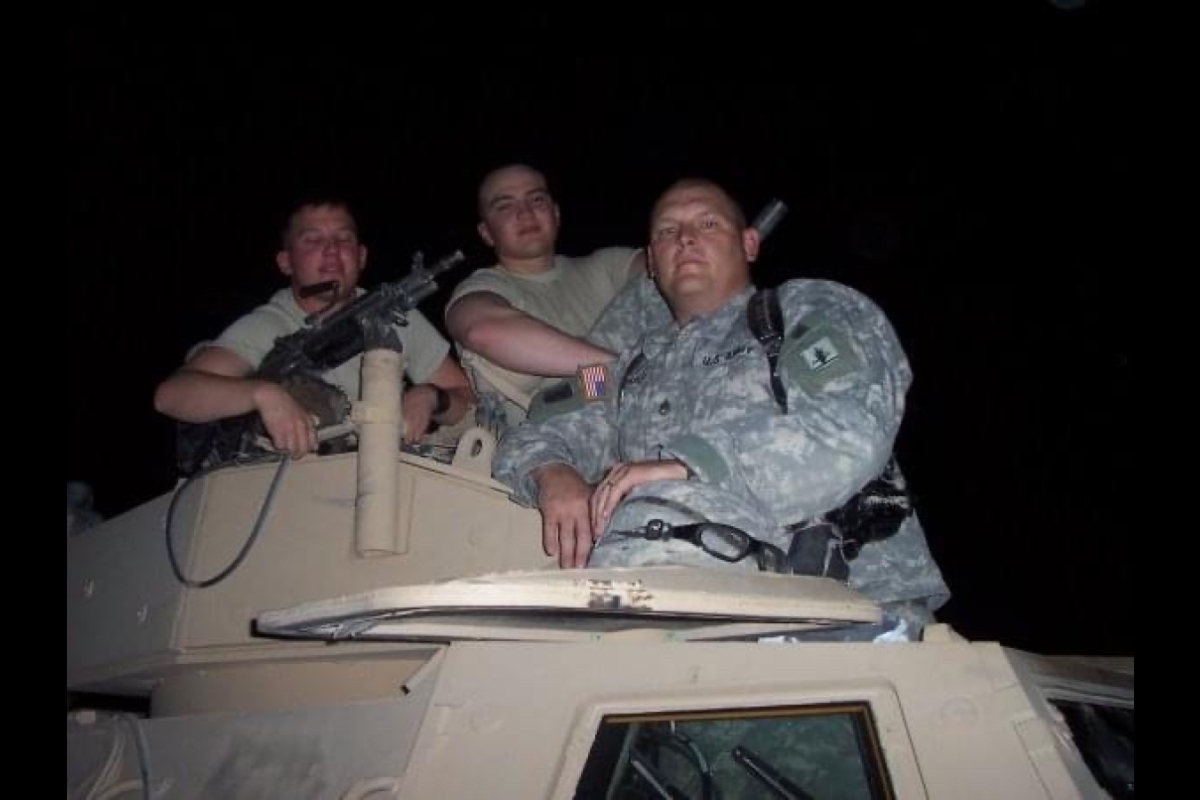A combat veteran, book author and pastor who first started working in Arizona State University's Pat Tillman Veterans Center as an unpaid volunteer six years ago was named the center’s new leader, effective Monday, Nov. 28.
Shawn Banzhaf, a retired Nebraska Army National Guard sergeant first class and former police officer, rose to the top of a candidate pool for the executive director’s position during a national search initiated in October.
“Through the process, it became evident that Shawn’s people-first leadership style, exemplary record of service to ASU’s veteran and military-affiliated students, and rich, vibrant vision for the Pat Tillman Veterans Center distinguished him as the top choice,” said Kent Hopkins, vice president of Academic Enterprise Enrollment at ASU. “As executive director, Shawn will primarily be responsible for conceiving and implementing a bold, expansive vision of what veteran and military-affiliated services should be at ASU.”
Banzhaf becomes the third director to lead the Tillman Center since its opening in 2011, but he is the first one to come from the enlisted military ranks. The previous directors were former commissioned senior military officers.
“The Pat Tillman Veterans Center has had two incredible leaders up to this point in Steve Borden and Jeff Guimarin,” said Brett Hunt, ASU professor of practice and former executive director of the Public Service Academy in the Watts College of Public Service and Community Solutions. “Shawn is the ideal leader to take the work of the center to the next level. As a retired noncommissioned officer and combat veteran, he is an incredible role model for veterans here at ASU.
“He has stood in front of their formations and walked in their boots.”
Banzhaf started working in the veterans center in 2016 as a volunteer chaplain, coming in twice a week to offer counseling to student veterans and staff. After a year and a half of volunteering, a paid military advocate position opened up. He went for it but fell short. He wasn’t chosen, at first.
“They offered the job to someone else, and they declined it,” said Banzhaf, a native of Chadron, Nebraska. “So they offered me the job, and I jumped at the chance and became the military advocate.”
Marine veteran Edward Brady, a graduate student with Watts College, has worked at the Tillman Center since 2020 and has gotten to know Banzhaf.
“Shawn has always served as a leader, a mentor and a friend,” Brady said. “He has helped me in many ways, most notably helping me get accepted into my graduate program. Shawn has an amazing passion for helping the veteran community.
“As director, I know that he will put our community before himself, will serve with compassion and will do everything he can to make ASU the place for student veterans.”
Most recently, Banzhaf served as associate director of student and academic innovations. In that role, he led a team responsible for providing strategic analysis for student success life cycles for more than 10,600 military-affiliated ASU students enrolled on campus and ASU Online. He has also been a facilitator in ASU’s Treks for Vets program, and he serves as the ASU Staff Council president.
Banzhaf served in the Army National Guard for 21 years, retiring as the acting first sergeant for the 1057th Transportation Company based in Nebraska. During his time in the guard, Banzhaf earned the Bronze Star and the Army Combat Action Badge for his actions during 100 combat missions around Baghdad, Ramadi and Fallujah, Iraq, in 2006.
Combat exposure and subsequent post-traumatic stress inspired Banzhaf to write “The Five Ls: A Practical Guide for Helping Loved Ones Heal After Trauma.” Banzhaf supports the “trauma-informed” movement in Arizona and is a sought-after speaker for local veterans groups and law enforcement agencies. He regularly speaks publicly about PTSD and suicide prevention within the veteran community.
“His experience taught him countless life lessons, and he makes every effort to pass those lessons onto the people he cares about,” Brady said. “Shawn’s caring attitude and determined work ethic are things that I hope to embody in my personal and professional life.”
The number of military-affiliated students at ASU has grown exponentially from just under 2,000 when the Pat Tillman Veterans Center opened to approaching 11,000 today. Despite the resounding success supporting the student growth, much work remains, and Banzhaf has ideas for the future.
“People talk about ‘the funnel’ in higher education, and even though we say student veterans are nontraditional, we funnel them through the traditional model often,” Banzhaf said. “I want to flip the funnel.”
In the future, Banzhaf wants student veterans to see the center as a place to prepare them for what’s next and help them achieve what he just did: land that “dream job.”
“Part of that is making some changes that really make career, professional development, a giant thing at the Pat Tillman Veterans Center,” Banzhaf said. “That’s part of what I want to do.”
Veterans come to ASU not only seeking degrees and economic opportunities for their families but also to grow into their next life phase, said Hunt, who worked closely with Banzhaf on civil-military events, such as Salute to Service and the Veterans Scholar Program.
“While traditionally the focus has been on providing excellent service in helping veterans access their benefits, I believe the next phase is providing more holistic support to the growth of veterans while they are here at ASU,” Hunt said. “Shawn is perfectly placed as director of the center to build out that part of the work.”
In November 2017, soon after Banzhaf was hired full time at the center, his supervisor at the time asked him, “Where do you see yourself in five years?”
His response: “Running this place.”
That conversation happened “five years to the week” of him finding out he was chosen to be the next executive director of the center, Banzhaf said.
“The Pat Tillman Veterans Center and ASU are national leaders in this space, and with Shawn, we have the right leader to charge forward,” Hunt said.
Top image: Moderator Shawn Banzhaf (left) leads a discussion during the panel "Combating Military Suicide: How the Brandon Act Will Prioritize Mental Health Care in the Military," held April 12 at the Memorial Union in Tempe. The Pat Tillman Veterans Center hosted the event featuring Sen. Mark Kelly and the parents of Brandon Caserta, who died by suicide while on active duty with the Navy. The act, named in his memory, seeks to improve the process for servicemembers to get mental health care. Photo by Charlie Leight/ASU News
More University news

ASU graduates overjoyed — and employed
Adam Wiechman will soon be headed to the Big Apple. Grace Reiter will be pulling up roots in May and moving to Ann Arbor, Michigan. Omkaar Shenoy is Philly bound. And Blake Niemann will be building…

ASU community exceeds goal, raises $835K for Valley of the Sun United Way
The Arizona State University community stepped up and raised over $835,266 for the Valley of the Sun United Way — exceeding the $800,000 goal for 2024.Of the total, $802,192.17 was raised through…

ASU launches online ocean futures undergraduate degrees
Our oceans make up three quarters of the planet’s surface and contain most of its biodiversity. Due to rapid and global changes, they are endangered — making more urgent a deeper knowledge of ocean…


